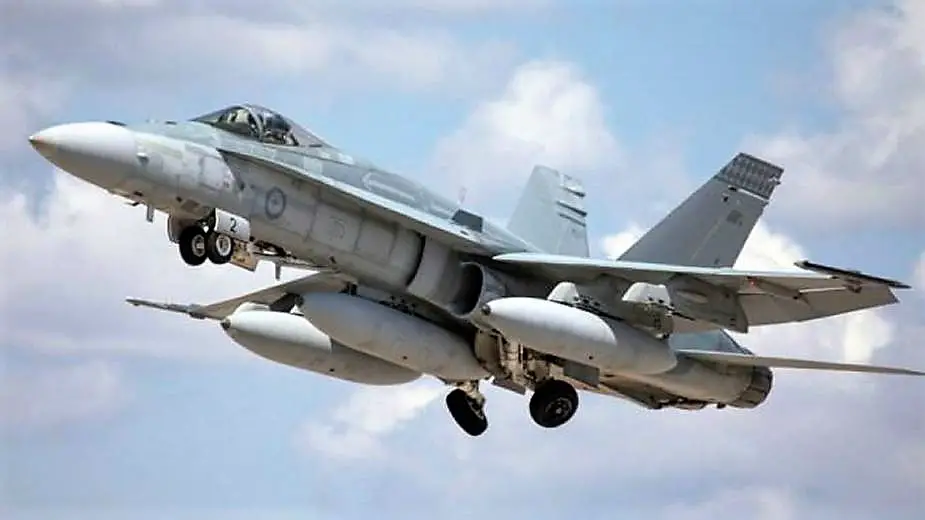Breaking news
Ukraine Air Force to possibly receive 41 decommissioned Royal Australian Air Force F/A-18 Hornets.
According to a report in the Australian Financial Review by Philip Coorey and Andrew Tillett, discussions are underway between Australia, the United States, and Ukraine regarding the potential transfer of 41 Royal Australian Air Force F/A-18 Hornets to Kyiv. This move aims to fulfill part of President Volodymyr Zelensky's request for fighter jets, rather than scrapping them as originally planned.
Follow Air Recognition on Google News at this link
 41 decommissioned Royal Australian Air Force F/A-18A Hornets might have a much more profitable fate by serving in the Ukrainian Air Force rather than be sadly scrapped as currently planned, a terrible waste! (Image credit: RAAF)
41 decommissioned Royal Australian Air Force F/A-18A Hornets might have a much more profitable fate by serving in the Ukrainian Air Force rather than be sadly scrapped as currently planned, a terrible waste! (Image credit: RAAF)
Sources have indicated that the United States is inclined to support the idea of gifting the F/A-18s to Ukraine. Since the United States owns the intellectual property rights to these retired jets, which have been replaced by F-35 Lightning IIs due to Australia's order of 72 of these newer aircraft, Washington's approval is necessary for the transfer.
Currently, the decommissioned F/A-18s are stored at the Williamtown RAAF base near Newcastle, Australia. If not sent to Ukraine, these aircraft would either be scrapped or sold to RAVN Aerospace, a private-sector aviation company in the United States. RAVN Aerospace intends to use them as "enemy" planes for military aviators' training purposes. However, a separate source involved in the discussions agrees that destroying these fully functional aircraft would be illogical. They suggest that the F/A-18s could be operational within four months and employed to help Ukraine defend against the Russian invasion.
Robert Potter, an Australian security expert advising the Ukrainian government, has confirmed that negotiations are ongoing. However, a specific agreement has not yet been finalized. He believes that the idea of transferring the planes to Ukraine is gaining momentum but emphasizes the need for multiple formal approvals before the procurement can be concluded.
While a few of the planes may only be useful for spare parts, the majority of them could be made flightworthy with minimal effort and still have a few years of service life remaining. The Australian Hornets are in good condition as they were not used in naval operations. Ukrainian pilots and ground crew could be quickly trained to operate these Hornets with the production of Ukrainian-language training manuals.
The Hornets' twin engines provide them with a higher chance of survivability in case of damage. A pilot can land the aircraft with only one engine functioning, which is particularly crucial for Ukraine, considering the shortage of pilots. To prevent the risk of escalation, Australia and the United States could explicitly state that the Hornets would only be allowed to operate within Ukrainian airspace. They could also issue a warning that if these aircraft were employed for bombing purposes against Russia, the allies would cease maintenance support, effectively grounding the planes.


























